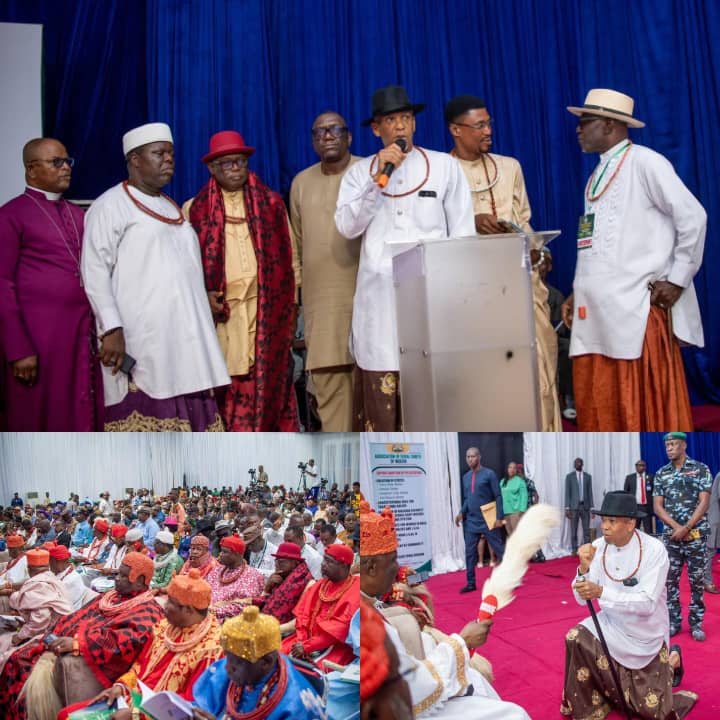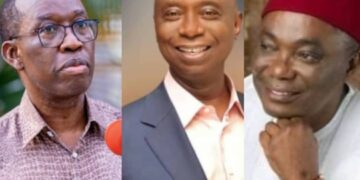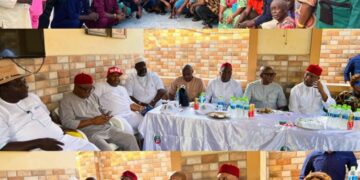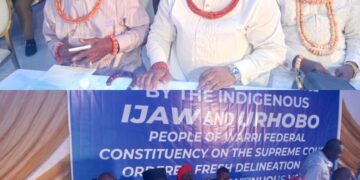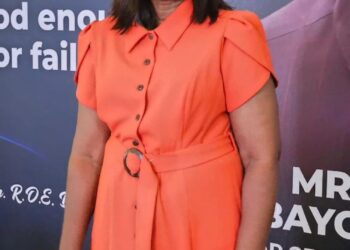Senator Ede Dafinone, representing Delta Central Senatorial District, has declared that the proposed creation of Ethiope State offers a crucial opportunity to correct decades of structural imbalances, empower the Urhobo people, Nigeria’s fifth-largest ethnic group, and drive sustainable economic and social development.
Speaking at the House of Representatives Committee on Constitutional Review’s public hearing at the Chief D.S. Alamieyeseigha Banquet Hall, Government House, Yenagoa, Senator Dafinone, who serves as Vice Chairman of the Senate Committees on Local Content and Legislative Compliance, emphasised that the Urhobo Nation has endured systematic exclusion despite its demographic size and economic contributions.
“The creation of Ethiope State will redress this imbalance, ensure fairer resource allocation, and accelerate infrastructural development in Urhoboland,” Dafinone stated.
According to him, the proposed state would consolidate two Urhobo kingdoms in Warri South Local Government Area, Urhobo communities in Patani Local Government Area, and eight predominantly Urhobo local government areas, establishing a demographic and administrative foundation for statehood that the current national structure overlooks.
Highlighting the region’s immense economic potential, Dafinone pointed out that Urhoboland, home to some of Nigeria’s most productive oil fields, remains underdeveloped and marginalised in national resource management.
He argued that Ethiope State would grant the Urhobo people greater control over local resources, catalyse economic growth, and promote responsible resource governance in line with the Petroleum Industry Act.
Dafinone also highlighted the proposed state’s strong economic foundation, citing its substantial oil and gas reserves, fertile agricultural land, strategic coastal access through Sapele and Warri, solid mineral deposits, and extensive forest resources.
He asserted that Ethiope State meets all constitutional requirements for state creation, including popular support, defined territory, economic viability, and legislative approval, describing the proposal as “one of the most procedurally sound and economically viable” in the nation’s history.
“Ethiope State would provide a coherent administrative framework rooted in shared identity, enabling more effective service delivery and tailored development initiatives,” he said.
The senator also stressed that statehood would foster local autonomy, accountability, and self-determination for the Urhobo people, enabling them to set developmental priorities and implement policies suited to local needs.
He cited existing infrastructure as a strong foundation for the proposed state, including Delta State University, Abraka; Federal University of Petroleum Resources, Effurun; Petroleum Training Institute, Effurun; Delta State Polytechnic, Otefe-Oghara; Federal Polytechnic, Orogun; Delta State College of Physical Education, Mosogar; Delta Steel Company, Aladja; and Warri Refining and Petrochemicals Company.
Dafinone concluded by describing the creation of Ethiope State as “not just viable but necessary,” framing it as a long-overdue recognition of the Urhobo people’s role in the Nigerian federation.
“This is a call for fairness, efficiency, and inclusion—principles at the core of any functional and equitable federation.”


